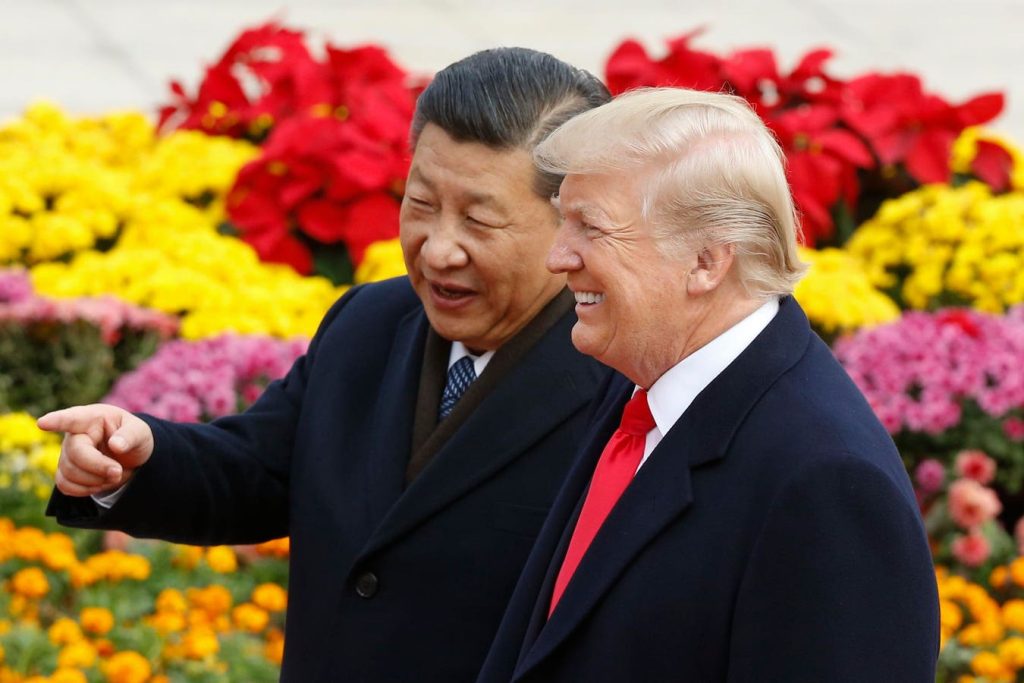Trump’s TikTok Deal Raises Eyebrows Across Political Spectrum
The Trump Administration recently announced a “framework” agreement with China that would allow ByteDance, TikTok’s Chinese parent company, to sell its U.S. operations to an American company. However, this deal has sparked significant concern from lawmakers on both sides of the aisle, as it appears to involve the new U.S. TikTok entity licensing algorithms from ByteDance—potentially undermining the very law Congress passed to address national security concerns. Chinese officials have confirmed this licensing arrangement, suggesting that TikTok would continue to rely on its Chinese parent company for its core technology. This has set off alarm bells in Washington, where many see it as contradicting the explicit requirements of legislation passed earlier this year that demanded a complete operational separation between any new U.S. TikTok entity and ByteDance, “including any cooperation with respect to operation of a content recommendation algorithm.”
The controversy highlights a strange reversal in the TikTok saga. The law requiring ByteDance to sell TikTok or face a ban was passed on April 24, 2024, but has gone unenforced since Trump took office in January—despite Trump himself attempting to ban the app during his previous administration. Key lawmakers have voiced their concerns about this apparent contradiction. Republican John Moolenaar, who chairs the House Select Committee on the CCP, expressed worry that the licensing deal would maintain TikTok’s dependence on ByteDance, violating the law’s requirements. Similarly, Democrat Raja Krishnamoorthi, a co-author of last year’s legislation, emphasized that “the law requires the new American TikTok to have no operational relationship with CCP-controlled ByteDance.” He challenged Trump to use his leverage to ensure TikTok’s data and algorithm are “truly in American hands,” stating this would be the standard by which the president’s actions would be judged once more details emerge.
The administration’s perspective was articulated by U.S. Commerce Secretary Scott Bessent, who told reporters that while Chinese negotiators were concerned with preserving “Chinese characteristics of the app, which they think are soft power,” American negotiators were focused solely on national security concerns. This distinction may prove crucial in understanding how the administration justifies its approach. However, legal experts remain skeptical about whether the proposed arrangement complies with the law. Alan Rozenshtein, a law professor at the University of Minnesota who has criticized Trump’s non-enforcement of the legislation, stated bluntly that a deal where TikTok merely uses ByteDance’s algorithms “is not a deal relative to the statute” and “will not in fact solve any problem.” Following reports that Trump’s plan involves engineers at the new TikTok “re-creating” recommendation algorithms using technology licensed from ByteDance, Rozenshtein noted that compliance might be possible depending on what exactly this means—if the algorithm is “fully recreated” by a new U.S. TikTok, it might satisfy legal requirements.
Technical experts remain doubtful about significant algorithmic changes. James Lewis from the Center for Strategic and International Studies predicted that the new TikTok wouldn’t create an entirely new algorithm but would likely make the existing one “a little more U.S. friendly.” He raised important questions about the practical implications of algorithm licensing: “What if there’s updates to the algorithm? Who does the updating? And how far can the U.S. Company go in tweaking the algorithm?” These questions highlight the complexity of drawing clear lines between licensing technology and maintaining operational relationships. The algorithmic control issue has been contentious since Trump’s first attempt to ban TikTok in 2020. At that time, ByteDance nearly sold TikTok as demanded, but the Chinese government intervened at the last moment, declaring the algorithm a sensitive technology subject to export restrictions—a move that effectively prevented a clean break between TikTok and its Chinese parent.
Despite lawmakers’ objections to Trump’s proposed deal, there appear to be few mechanisms to challenge it legally. Presidential discretion in law enforcement gives Trump considerable latitude, and while Congress theoretically could pressure the administration by withholding legislation until the president enforces the law as intended, such confrontation seems unlikely given political realities. As Rozenshtein put it: “Our constitutional system does not automatically redress every wrong. This is another example of the sort of sad trombone that our constitutional system has slid into over the past decade.” While he still hopes Trump will negotiate a “lawful” deal under the statute, he remains skeptical given “the Trump administration’s track record of saying random things that don’t end up coming true.”
The final outcome remains uncertain, with experts watching for developments from the Trump-Xi meeting to see whether the deal actually materializes. As Lewis colorfully observed, “It’s not done until Xi and Trump give it a big kiss.” This saga illustrates the complex intersection of technology, national security, and international relations in the digital age. The resolution—or lack thereof—of the TikTok controversy could set important precedents for how the United States manages foreign technology platforms that have become deeply embedded in American social and cultural life. As legislators, security experts, and users alike await more details, the question remains whether any compromise can satisfy both national security concerns and the immense popularity of an app used by millions of Americans daily.


